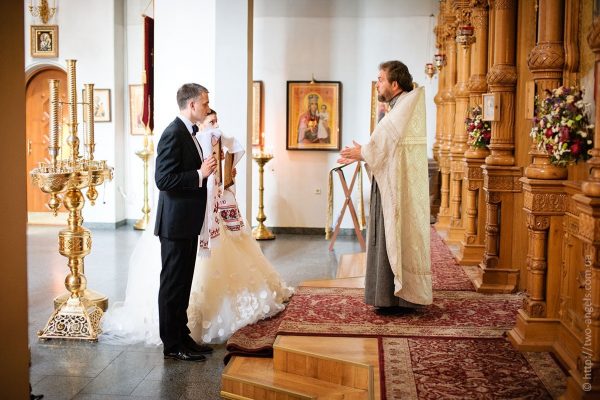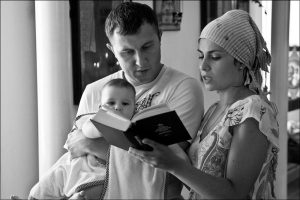I have noticed that when my heart is upset (anger, confusion, frustration, depression, etc.) and I speak unguardedly, I don’t say what I mean. Now here when I say “heart,” I don’t mean the heart of man as the Fathers speak of the heart; rather, I mean what most English speakers mean when they say heart: their feelings, their inner emotional selves. Particularly in the relationships I care most about, I must be very careful.
Honesty in relationships is a tricky thing. Yes we must be honest with one another, but if we are not very careful, our words can contain barbs that wound the ones we love. And in the end, what we say really isn’t what we mean.
Unless one grows up in an exceptionally healthy environment, we learn quickly that the least painful way to be “myself” is to become a persona, a created mask of ourselves—who we wish we were and who we want others to know us as. In fact it is common for us to wear several masks. I remember in high school noticing how many different “me’s” there were: the home me, the church me, the school me, the athletic me, the boy friend me and in my few quiet moments (thank God!) the me that noticed the many shattered me’s. I have read in psychology books that this is normal. It may be common, but I do not think it is normal.
When I counsel couples who want to get married, I always tell them that marriage is a lot of work, and they always smile and say, “Yes, we know.” It’s almost a ritual, but you have to at least warn them even if they have no categories to understand what you mean. There’s hard work and then there’s hard work. The hard work of marriage is the work of taking off your mask, of becoming naked before one another. The real labor of this stripping away of your false selves is to do it lovingly. That is, much of what I think and feel should not be said with the force and vocabulary with which I think or feel it. I must speak in ways that build up and encourage, not tear down.
This is the hard work. Mostly we learn through mistakes. We speak and then realize what was heard was not what we intended to say. Sometimes, if we are really lucky, we have a role model, someone whose marriage or family we admire. We can learn too from them, but mostly it is trial and error. I don’t think there is any way around it. You try, you hurt and are hurt, and you forgive and try again.
This process of learning to love those whom we love can get stalled quite easily. It is easier just to put up a mask than to risk the hurt of trying to communicate lovingly. The meaning of nakedness is lost, the nakedness in the Garden of Eden. Even if you have no clothes on, you are not naked if you are wearing a mask. Marriages may last for years, two masks relating to one another, tolerating on another, enduring one another. We are wounded people who end up wounding those we love most. Lord have mercy!
And yet salvation is possible, even in marriage, even in this day and age. The me at the center must put on Christ in order to be myself. But putting on Christ is not an ecstatic religious experience. It is the hard work of putting on kindness when I don’t feel kind. It is speaking gently when I don’t feel gentle. It is suffering a little longer when I am tired of suffering (i.e. patience). “Wait!” I hear screamed from the other side of my computer screen, “I thought I was supposed to be myself and to take off masks. Now you’re telling me to put on Christ.” Ironic, isn’t it? By putting on faithfulness, joy, meekness, etc. I become more myself, and my masks melt away. By carefully clothing my words and actions in goodness, kindness, patience, self control and meekness (humility), I find that I am able to be myself in ways that do not hurt those around me. By clothing myself in Christ, I become naked—naked like Adam and Eve in the Garden before the fall.




















